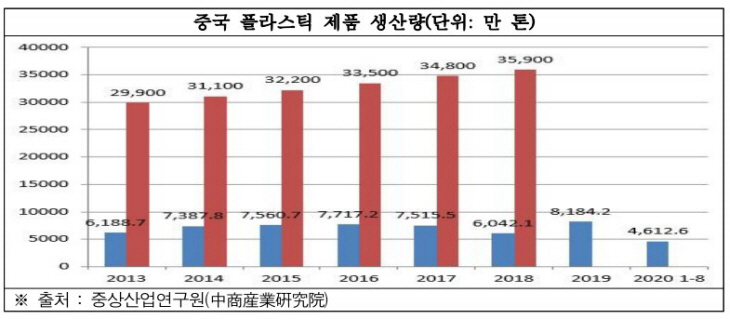
|
|
▲ Provided by Korea International Trade Association |
[에너지경제신문 김아름 기자] It was argued that the Chinese government is implementing a ban on the use of disposable plastic products, so that domestic eco-friendly companies should consider entering electrodes.
According to the Korea International Trade Association on the 19th, in accordance with the’Plastic Pollution Control Reinforcement Plan’ announced by the Chinese government in January last year in the’Chungdu Branch of the Korea International Trade Association’ published on this day, The production and sale of foam plastic food containers and plastic cotton swabs has been banned throughout China.
Shampoo, conditioner, hand sanitizer, soap, scrub, toothpaste, etc., added with fine plastic particles for effects such as cleansing, have also been banned from the new year, and sales will also be banned from 2023. In addition, non-decomposable plastic bags, which are often used in stores and food delivery, have been banned from use in major cities such as cities under direct control from this year, and from 2026 to most regions of China. The ban on the use of disposable plastic tableware and plastic packaging for parcels will also start in major cities this year and expand nationwide in 2026.
In September of last year, the Chinese government announced the’People’s Republic of China Solid Pollution Environment Control Act’, which would impose a fine of up to 100,000 yuan (approximately 17 million KRW) for violations of restrictions on the production, sale, and use of disposable plastic products. It showed a strong commitment to management.
Accordingly, companies in related fields such as catering, hotels, supermarkets, and parcel delivery have hurried to respond. McDonald’s, Pizza Hut, and Scha (喜茶) started banning the use of plastic straws, tableware, and plastic bags from last year, as well as introducing paper straws and biodegradable plastic bags.
In addition, the food delivery platform, Meitou, is developing an eco-friendly packaging solution and providing it to stores, while also developing a lunch box collection system. Wal-Mart also stopped providing non-degradable plastic bags in all cities under direct control, and the Accor Hotel Group decided to provide biodegradable disposable toiletries starting this year.
Go Beom-seo, head of the Chengdu branch of the International Trade Association, said, “According to the government policy, demand for plastic replacement products and eco-friendly biodegradable plastic products in China will increase rapidly in the future. Our country has already sold cosmetics that do not contain microplastics. As we are leading in the field, we must actively preoccupy the market by emphasizing eco-friendliness and high stability.”
